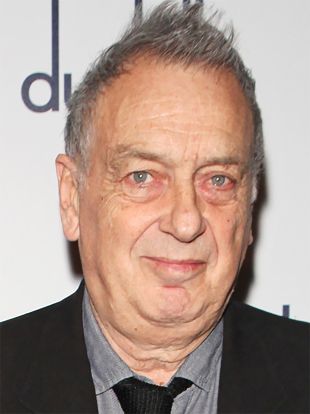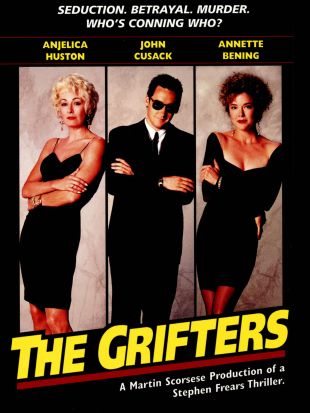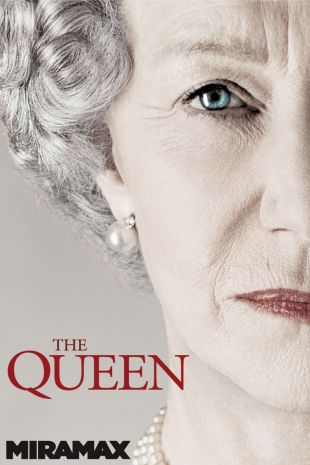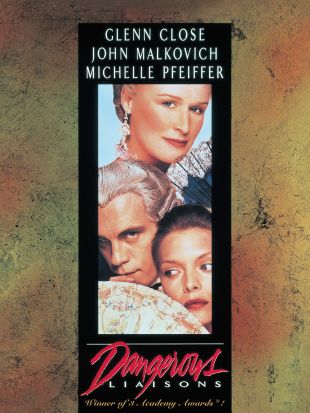Known for making provocative, stylized, and tightly budgeted films about people living on society's social and/or sexual fringes, British director Stephen Frears is renowned as one of his country's most vibrant and recognizable filmmakers. Regarding his tendency to make films that branch into unfamiliar territory, Frears has said that he likes "making films about different cultures...I'm interested in things that I've never encountered before. I try to put myself in the audience's position." Born in Leicester on June 20, 1941, Frears studied law at Cambridge University before turning to the arts. He became involved with London's Royal Court Theatre, where he served as an assistant to director Lindsay Anderson and to actor Albert Finney. He started his career in the film industry as an assistant director to Karel Reisz, with whom he worked from 1966 until 1972.
In 1971, Frears made his directorial debut with Gumshoe. Starring Finney, it was a tribute to the hardboiled detective drama. Frears helmed a few made-for-television films, and in 1985, he had his breakthrough directing My Beautiful Laundrette. Written for the screen by Hanif Kureishi, the film used its central story of the relationship between a young Pakistani and a London street punk (a then unknown Daniel Day-Lewis) to explore issues encompassing homosexuality, racism, and intergenerational tensions. An edgy, offbeat tale, it earned great critical acclaim, a Best Original Screenplay Oscar nomination, and a New York Film Critics Circle award for Kureshi. Frears and Kureishi again collaborated on Sammy and Rosie Get Laid (1987), a film about the faltering relationship between a London couple. Like My Beautiful Laundrette, it looked at a number of issues that were particularly relevant to late-'80s British society; unlike Laundrette, it failed to make much of an impression on critics or audiences.
Frears' next three films proved to be some of the most successful of his career. The first, Prick Up Your Ears (1987), was a biographical drama about the celebrated and controversial English playwright Joe Orton. Featuring stellar performances by Gary Oldman as Orton, Alfred Molina as his tragically unstable lover, and Vanessa Redgrave as his agent, the film was widely praised. A year later, a Best Director BAFTA nomination and a number of international honors greeted Frears for Dangerous Liaisons, his adaptation of Choderlos de Laclos' Les Liaisons Dangereuses. The director's most opulent piece to date, it was an elegant, witheringly cynical tragi-comedy that boasted an Oscar-winning script by Christopher Hampton and deliciously nasty lead performances from John Malkovich and Glenn Close, the latter of whom earned an Oscar nomination for her portrayal of the scheming Marquise de Merteuil. Frears gained more international acclaim and a Best Director Oscar nomination in 1990 for The Grifters. The gripping, stylish depiction of a deadly power struggle between three con artists (John Cusack, Anjelica Huston, and Annette Bening), the film earned a reputation as one of the best noirs in recent memory. Both Huston and Bening were nominated for Oscars for their work, and Frears duly earned a reputation as one of the most gifted British directors of his generation.
Frears' subsequent films have been of wildly mixed quality. Hero (1992) and Mary Reilly (1996) were complete duds, while two Roddy Doyle adaptations, The Snapper (1993) and The Van (1996), were modest affairs that enjoyed a fairly positive reception. Despite the presence of a strong cast that featured Woody Harrelson, Billy Crudup, Penélope Cruz, and Patricia Arquette, Frears' 1998 film, a 20th century Western entitled The Hi-Lo Country, was a sizable disappointment. A number of critics remarked that Frears was out of his element directing a film about cowboys. In 2000, however, Frears returned to more familiar territory with High Fidelity. Adapted from Nick Hornby's popular novel of the same name, the film reunited Frears with Cusack (who also co-wrote the script), and promised more of the same insightful social and sexual commentary that had so endeared the director to audiences and critics in years past.
Frears continued in 2000 with a nod to his past by directing the television remake of Fail Safe, featuring an all-star cast headed by George Clooney and Harvey Keitel. It was the first live two-hour telefilm in decades. That same year, he released the drama Liam. In 2002, Frears made one of his best films, Dirty Pretty Things, a biting yet hopeful drama-thriller about illegal aliens working, living, and surviving in London. The film's script was written by Steven Knight, the creator of the original British version of Who Wants to Be a Millionaire? In 2003, Frears once again directed a film for British television. The Deal was a historical political drama about how Tony Blair came to be the head of the Liberal party.
After a detour with the respectably ribald period piece Mrs. Henderson Presents, Frears reunited with the writer and star of The Deal to take another look at modern royalty; the result would be one of the high points of his career. Scripted by Peter Morgan, 2006's The Queen took a comic-yet-sympathetic look at the P.R. nightmare that ensued after Princess Diana's death in 1997. Bolstered by Helen Mirren's universally acclaimed work as Queen Elizabeth II, the film enjoyed a healthy arthouse run through awards season, when Frears found himself the recipient of countless Best Director nominations from critics' organizations, as well as the Golden Globe Awards. He won praise for his direction of the comedy drama Tamera Drewe in 2010, and reunited with screenwriter D.V. DeVincent to direct the Lay the Favorite in 2012.



